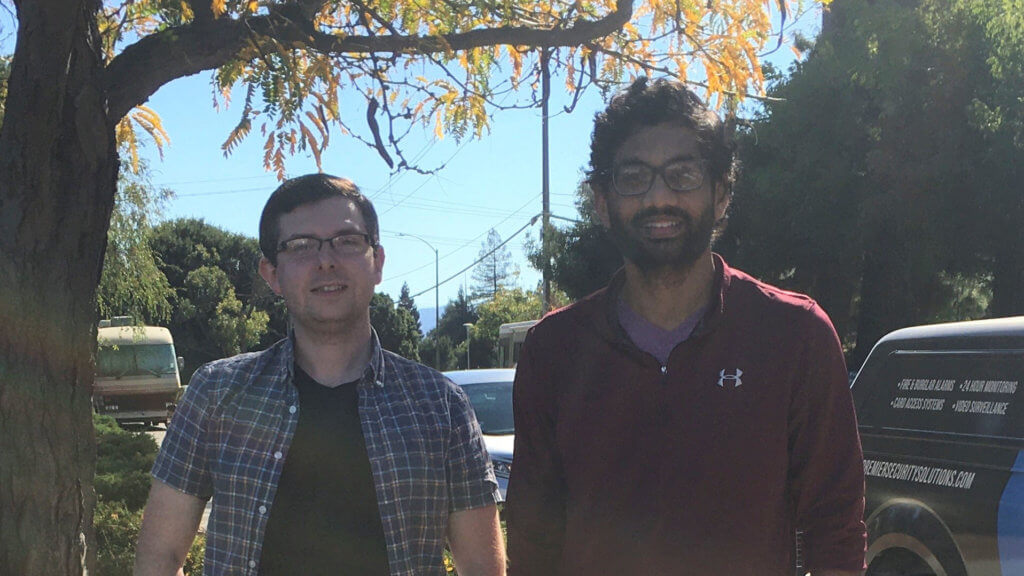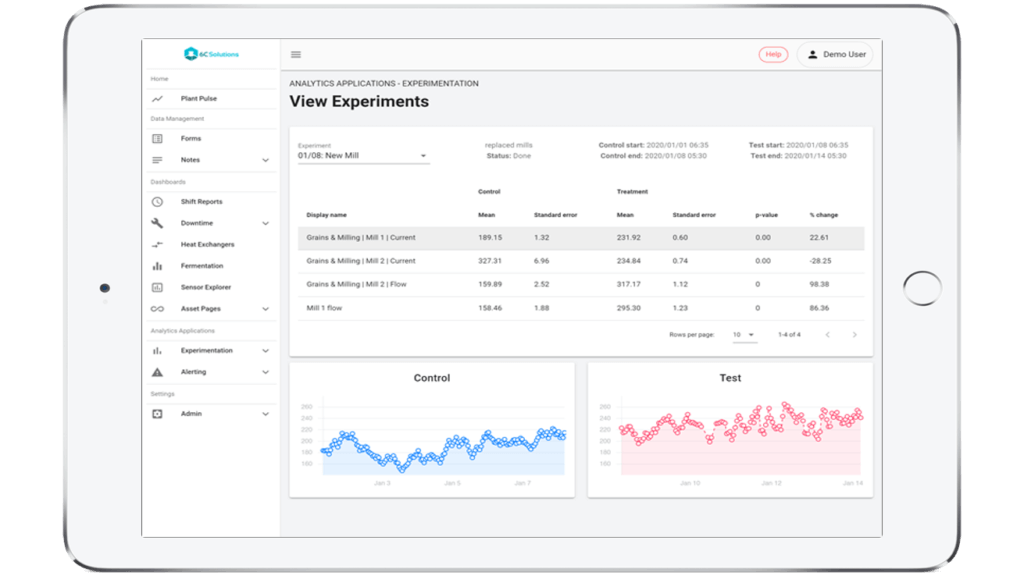Intelligent data for chemical plants
Judith Hillen
The US-based startup 6C Solutions is developing combining data from many different sources and especially by integrating contextual data like operators’ notes, y combining data from many different sources and especially by integrating contextual data like operators’ notes, they have built various tools to automate tasks that are usually done manually. By combining data from many different sources and especially by integrating contextual data like operators’ notes, they have built various tools to automate tasks that are usually done manually. This year, the two founders Keerthan Vantakala, CEO, and Zak Kann, CTO, were selected as participants of the startup bootcamp X-Linker. In this interview with 5-HT, they explain what makes their approach to industrial analytics software unique and how their solution can increase productivity throughout the chemical plant.
 6C Solutions Zak Kann & Keerthan Vantakala
6C Solutions Zak Kann & Keerthan VantakalaWhat are the problems about the way chemical industry works with data today?
Zak Kann: In chemical plants, a lot of data from different sources is already available, but it is not digitized and not bundled in one place. In particular, notes from the operators, the people working on the production floor, are often only written on paper. This is very powerful data, but chemical plants cannot make good use of it because it is not captured in an appropriate way and not connected to the rest of the data.
How does 6C Solutions help chemical plants to make better use of their data?
Keerthan Vantakala: Essentially, we bring together a lot of the data sources that are already available at chemical plants including process data, data from labs, and information from other systems like CMMS and LIMS. We also make it very easy to collect operators’ notes in reference to specific times and assets. This contextual data can then be linked to particular events like asset downtimes. Once a similar situation occurs, the information about previous occasions can be used to solve the problem. By connecting all this data and building tools around it, we help chemical plants to improve their workflows and to increase productivity. Using our solution makes it possible for operators, engineers and lab managers to do their day-to-day tasks much faster than before.
What kind of applications are there for your solution?
Keerthan Vantakala: Our experimentation platform allows engineers to quantify the impact of a process change across the entire plant. When I was working at a chemical plant myself, I had to do jobs like these manually, which took a lot of time. At 6C Solutions, we have built a tool to automate this process: you can select the different metrics you want to track, and the tool will update with the results of the process change in real-time. It is also possible to conduct statistical tests to see if the results are statistically significant or not. Furthermore, we offer a tool for the comprehensive review of every shift, presenting KPIs, alerts, notes and goals all in one place at the end of a shift. Our clients can also use our solution to monitor specific assets in detail by receiving alerts, notes, and graphs for every type of asset.
 6C Solutions Screenshot_Experimentation
6C Solutions Screenshot_ExperimentationWhat sets you apart from existing solutions?
Keerthan Vantakala: What is unique about our approach is our focus on being a plant-first tool. A lot of data platforms are mainly focused on delivering data to the corporate level. Some companies buy software solutions without talking to the individual plants and finding out what they actually need. In cases like these, companies misspend a lot of money. Because our tool is specifically tailored to the plant, we make sure that it actually brings value to the plant and, thus, to the company as a whole.
How did the idea for 6C Solutions develop?
Keerthan Vantakala: I made a switch early on in my career to go from chemical engineer to big data consulting. During my time as a consultant I learned how to code, got exposed to different kinds of tools, and kept thinking that technological solutions like these would have made my job at the plant a lot easier. This is how the idea for 6C Solutions came up. After a while, Zak joined the project with many great ideas on how to alter the technology and make the platform more scalable.
Zak Kann: I finished a Ph.D. in computational chemistry, with a focus on time-series data and simulations. Working in the advertising and travel industries, I gained experience in dealing with big data. Given both those aspects of my background and my passion for sensors and automation, Keerthan’s idea seemed like a perfect fit.
What are your next steps in the further development of 6C Solutions?
Keerthan Vantakala: With the impacts of coronavirus affecting almost every industry this is a question we ask ourselves every day. Just in the past few weeks we have made some drastic changes in our go-to-market plan. We are now offering analytics consulting for industrial facilities on top of our software product. Initially, we wanted to showcase our product in one focused market, the ethanol industry, and now we are ensuring all of our tools are industry agnostic. Lastly, we are also talking to potential clients in various plants to see what issues they have and what kind of additional tools would be useful for them. When the current situation is over, we want to be in a state where we can expand very fast.
What are your biggest challenges?
Keerthan Vantakala: One challenge we face is that many plants have some reservations about working with a startup/small company. Another big challenge for us is that the type of data we would like to work with is not being collected in an efficient manner. Our long-term vision is to build a complete dataset of a plant, but we have realized that we need to start with creating smaller, more specific apps that solve a problem and generate a quicker ROI for our clients while still contributing to our end goal.
Together with nine other selected startups, you were part of this year’s startup bootcamp X-Linker – what was your experience with the program, and what were your biggest learnings?
Zak Kann: We learned a lot about the differences between the German and the American market, for example, the appropriate communication style to use when talking to German corporates or investors. This was very useful knowledge for us.
Keerthan Vantakala: The program was fantastic! Not only did it give us a break from the cold Chicago winter but it also gave us an opportunity to meet with great innovators. By innovators I’m referencing the other startups as well as the corporates that were in attendance. It’s great to see larger companies take a significant role in helping the startup ecosystem.
5-HT Chemistry & Health Newsletter
Want the latest tech and industry news, events, relevant info from the ecosystem and more?
Subscribe to 5-HT Newsletter now Subscribe to 5-HT Newsletter now
Become part of the 5-HT Chemistry & Health
Exchange ideas with innovative startups and future-oriented companies in our ecosystem. We look forward to meeting you!